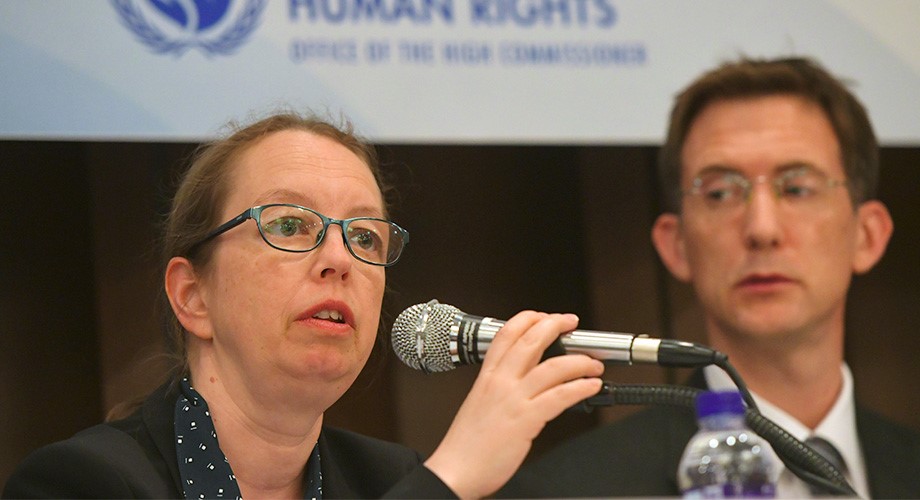
When the COVID-19 outbreak began in China, UN Human Rights immediately saw the potential dangers for neighbouring Democratic People's Republic of Korea (more commonly known as North Korea, hereafter "DPRK").
Although, at the time of writing, the DPRK had not officially recorded any cases of COVID-19, UN Human Rights holds grave concerns for the human rights consequences that the virus – and measures taken to prevent its spread - will bring to a population which is already suffering.
Signe Poulsen is the Representative for UN Human Rights in Seoul, in the Republic of Korea. From Seoul, the UN Human Rights team is monitoring the situation for people inside the DPRK.
How has COVID-19 affected your work?
In late February, when the number of infections in the Republic of Korea (ROK) was rapidly increasing, there was not much information about how to respond. As a precautionary measure, our staff who had possibly been exposed in locations where the virus had spread, started working from home. Later, we extended this to most of the team, in line with the ROK Government's guidelines on physical distancing. The Seoul office was the first in UN Human Rights to begin working remotely.
Since January, we have worked closely with people from the DPRK living outside of the country and with civil society organisations, particularly those with contacts inside the country, to gather up-to-date information. Individuals and organisations working on human rights did not have access to the DPRK even before the pandemic, so they are skilled at working in this way. Working remotely is also something that the Seoul office has always been required to do due to a lack of access to the DPRK, so we were well-placed to do so even when the movement restrictions were put in place. We contact our partners by phone on a weekly basis, and we also monitor information in the DPRK state media, and in international media.
At the same time, we have adjusted our other activities. Staff continue to work from home, and schools remain closed, while the Government is continuing measures to contain the spread of COVID-19.
What is UN Human Rights doing to protect the rights of people during this pandemic?
Our office in Seoul monitors and analyses the situation in the DPRK. Based on the information we gather, we provide recommendations for addressing the situation to member states, to other UN agencies, to the DPRK authorities and to other relevant stakeholders. We report to the Human Rights Council as well as the General Assembly. The High Commissioner and Special Rapporteur on human rights in DPRK have both called for a relaxation of sanctions that could impact the health sector in DPRK.
In addition, we are raising awareness of how human rights can help protect all people, but in particular the most vulnerable. We have translated key documents into Korean, allowing easier access to information about the human rights implications of COVID-19.
What are the main human rights issues at stake in the DPRK in the COVID-19 response?
What we see is that the response to COVID-19 has exacerbated an already extremely difficult situation for many people in the DPRK, due to the increased restrictions on movement within the country and across borders. The country's health system is also very weak, especially for the rural populations.
The DPRK was the first country to close its borders in response to COVID-19, and the authorities distributed information about preventing spread of the virus. But the COVID-19 response risks make a desperate humanitarian situation even worse. Prior to the COVID-19 crisis, the general population was already struggling for survival, with around 40 per cent of people food insecure and facing other economic hardship. The closing of the border with China has led to a further deterioration in the situation, as trade is severely limited.
Many people who were already in a desperate situation are no longer able to meet their basic needs. We are particularly concerned for the most vulnerable – detainees held in cramped conditions, as well as people who are not able to access adequate health care, or those who do not have access to enough food, a safe source of water, or who cannot afford to buy masks and soap.
Given the poor state of the health care system and that a significant part of the population may be suffering from malnutrition, our major concern is that a large-scale outbreak of the virus risks a far higher mortality rate than in neighbouring countries.
Biggest challenges and lessons learned thus far during the pandemic?
As with everything, it is very difficult to know the full situation in the DPRK. Restrictions on information, on access to the country, and on people's right to raise concerns mean that we do not know everything. Nevertheless, we do have some reliable information, including about increasing economic hardship. Working with partners in civil society makes our information stronger.
Another big challenge is the situation that COVID-19 has created for people from the DPRK who seek to escape from the country. Most of these are women who escape across the border with China. With the closure of the border, and with the risk of contracting COVID-19, it has reportedly become almost impossible to leave the DPRK.
Why is it important to stand up for human rights during this pandemic?
This is a global pandemic, which requires global responses. While it is difficult to respond in the DPRK, empowering people to become active in local and national governance, making better use of technology, and redistributing resources in more equitable ways, are all methods which are crucial to the response and beyond. More immediately, it is critical that countries, including the DPRK, work together as part of the international community, to help those in greatest need.
15 May 2020
